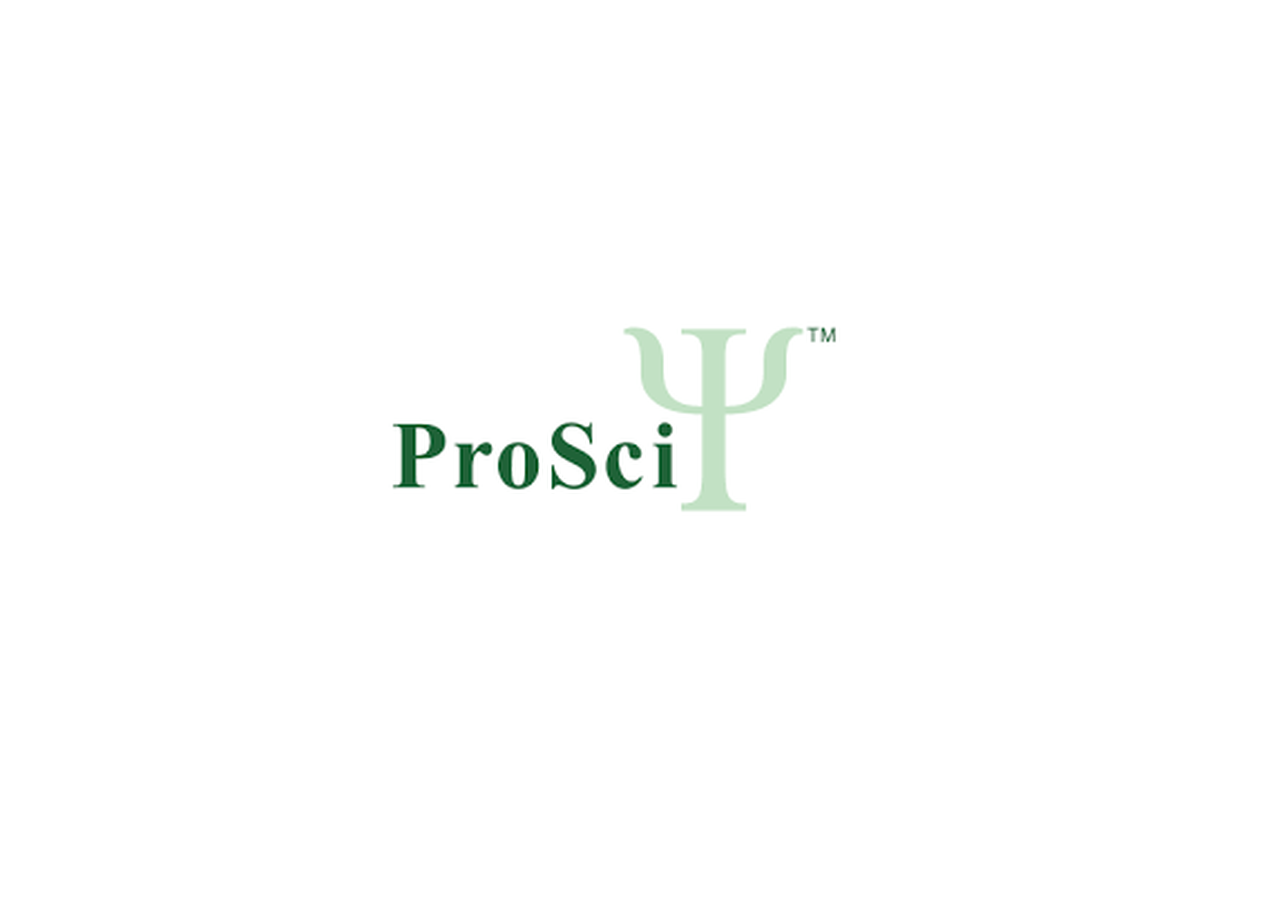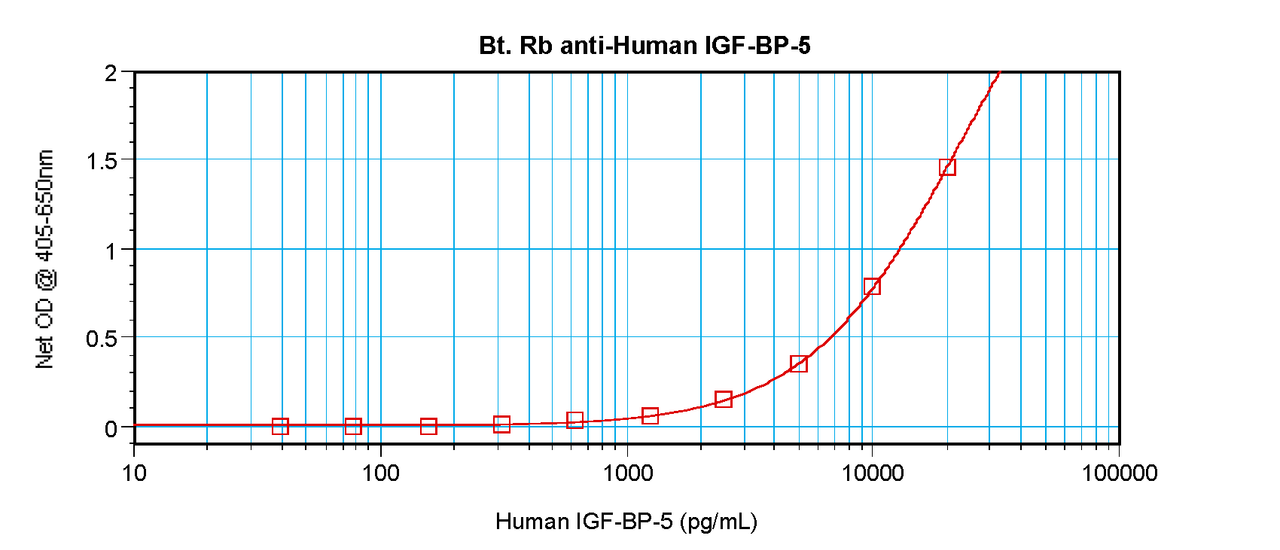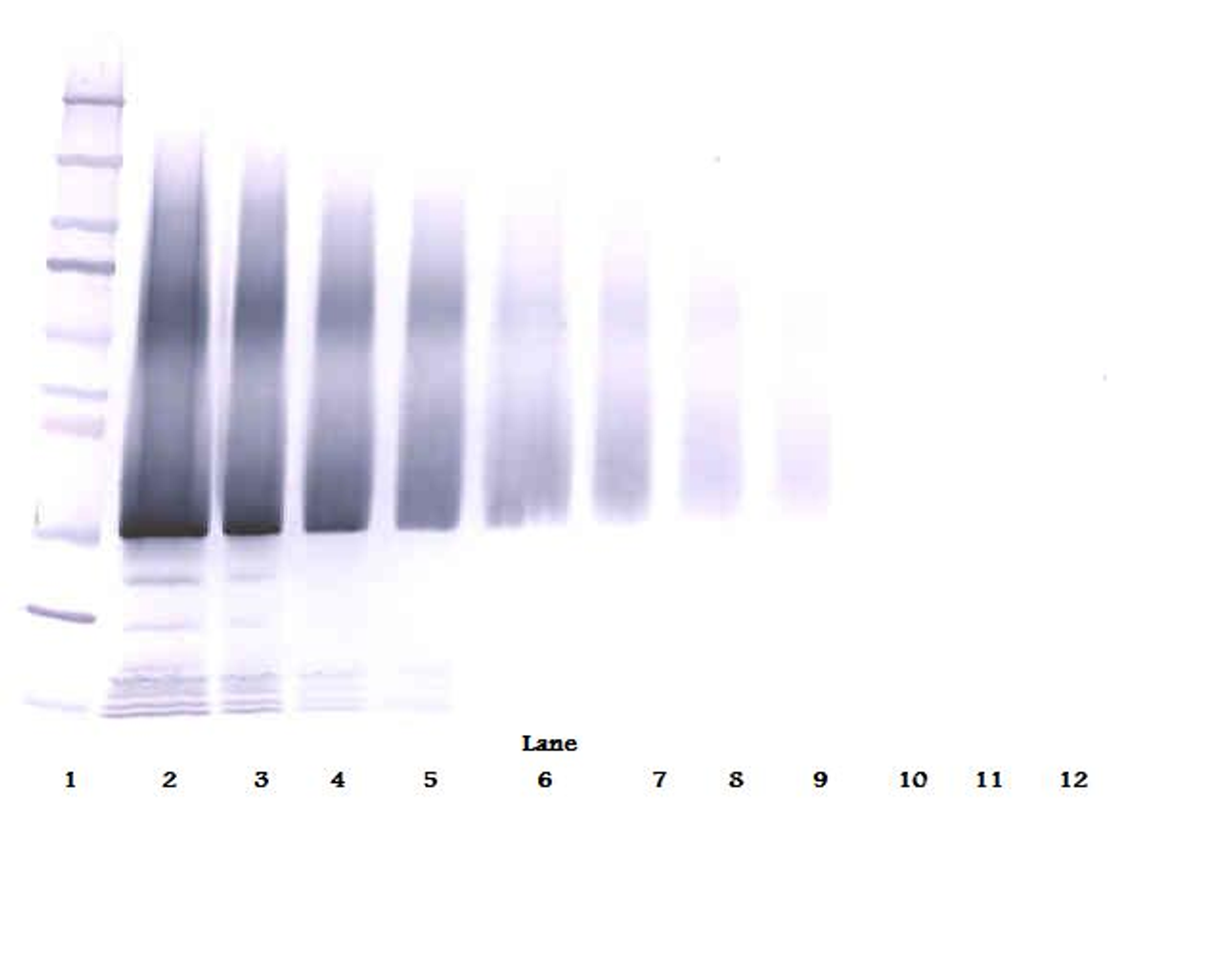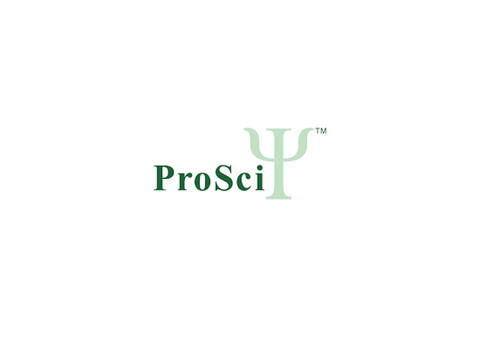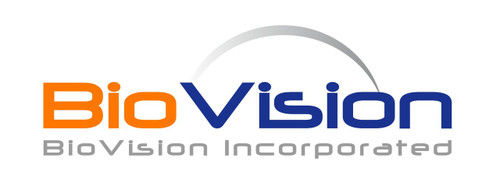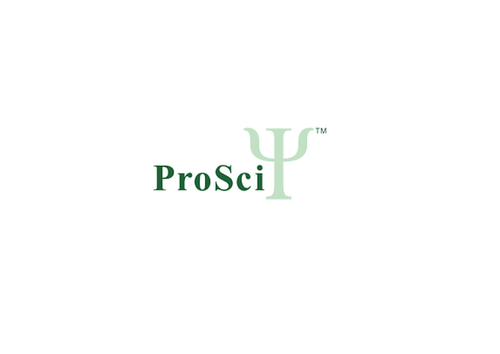Product Description
IGF-BP5 Antibody (biotin) | 38-154 | ProSci
Host: Rabbit
Reactivity: Human
Homology: N/A
Immunogen: Produced from sera of rabbits pre-immunized with highly pure (>98%) recombinant hIGF-BP5. Human IGF-BP5 specific antibody was purified by affinity chromatography and then biotinylated.
Research Area: Antibody Pairs
Tested Application: E, WB
Application: ELISA:
Sandwich:
To detect hIGF-BP5 by sandwich ELISA (using 100 μL/well antibody solution) a concentration of 0.25 - 1.0 μg/mL of this antibody is required. This biotinylated polyclonal antibody, in conjunction with our polyclonal Anti-Human IGF-BP5 as a capture antibody, allows the detection of at least 0.2 - 0.4 ng/well of recombinant hIGF-BP5.
Western Blot:
To detect hIGF-BP5 by Western Blot analysis this antibody can be used at a concentration of 0.1 - 0.2 μg/mL. Used in conjunction with compatible secondary reagents the detection limit for recombinant hIGF-BP5 is 1.5 - 3.0 ng/lane, under either reducing or non-reducing conditions.
Specificiy: N/A
Positive Control 1: N/A
Positive Control 2: N/A
Positive Control 3: N/A
Positive Control 4: N/A
Positive Control 5: N/A
Positive Control 6: N/A
Molecular Weight: N/A
Validation: N/A
Isoform: N/A
Purification: N/A
Clonality: Polyclonal
Clone: N/A
Isotype: N/A
Conjugate: Biotin
Physical State: Lyophilized
Buffer: N/A
Concentration: N/A
Storage Condition: IGF-BP5 antibody is stable for at least 2 years from date of receipt at -20˚C. The reconstituted antibody is stable for at least two weeks at 2-8˚C. Frozen aliquots are stable for at least 6 months when stored at -20˚C. Avoid repeated freeze-thaw cycles.
Alternate Name: IBP5, IBP5, Insulin-like growth factor-binding protein 5IBP-5
User Note: Centrifuge vial prior to opening.
BACKGROUND: IGF-BP5 is one of a family of proteins that bind to insulin-like growth factors (IGFs) . IGFB-P5 is a multifunctional protein which acts not only as a traditional binding protein but also functions as a growth factor independent of IGFs to stimulate bone formation. Currently there are seven named IGF-BPs that form high affinity complexes with both IGFI and IGFII. IGF-BP5 is the major IGF-binding protein present in bone tissue and helps potentiate the action of IGFI on smooth muscle cells, fibroblasts or osteoblasts. Data shows that IGF-BP5 acts as a growth inhibitor and pro-apoptotic agent in breast cancer cells. IGF-BP5 overexpressing mice show an increase in neonatal mortality, reduced female fertility, whole-body growth inhibition and retarded muscle development.
 Euro
Euro
 USD
USD
 British Pound
British Pound
 NULL
NULL

